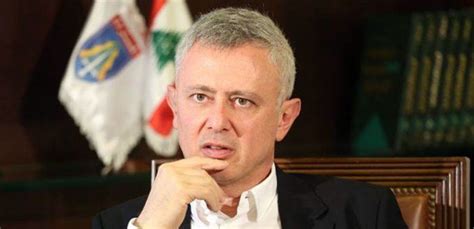
Marada Movement chief Suleiman Franjieh on Sunday revealed that his party will not name a successor for Information Minister George Kordahi, who resigned on Friday over a diplomatic crisis with the Gulf states.
“With our respect and love for all the names that have been raised in the press, our stance that we expressed in Bkirki about not naming a successor to George Kordahi has not and will not change,” Franjieh tweeted.
Prime Minister Najib Mikati called Education Minister and Acting Information Minister Abbas Halabi and asked him to assume responsibilities at the Information Ministry in the transitional period after the resignation of Minister George Kordahi.
Kordahi resigned on Friday, saying he was putting the country before his personal interest to help end a diplomatic dispute with Saudi Arabia brought on by his comments.
Kordahi, a TV host-turned-politician, said he had quit before Emmanuel Macron’svisit to Saudi Arabia in hopes the French president would help ease the crisis triggered by his critical remarks about Saudi Arabia’s role in the Yemen war.
Kordahi stepped down Friday in a move he said could open the way for easing an unprecedented diplomatic row with Saudi Arabia and other Gulf Arab nations that has compounded Lebanon’s multiple crises.
The resigned minister had criticized the Saudi-led military intervention in Yemen during an interview which was recorded before he became minister but was aired after he joined the Cabinet.
His comments angered Saudi Arabia as well as Kuwait, Bahrain and the UAE, which responded by recalling their ambassadors from Beirut.
Saudi Arabia also blocked imports and Kuwait said it would limit visas issued to Lebanese, prompting fears that a Gulf backlash could endanger the interests of millions of expatriates living in Arab states of the oil-rich Gulf.
The standoff marked a fresh blow for Lebanon, whose government was only formed in September after a 13-month deadlock.
Saudi Arabia expelled Lebanon’s envoy to the kingdom, recalled its ambassador to Beirut and banned Lebanese imports after Kordahi’s comments, which Riyadh said were a symptom of the wider issue of Iran-backed Hezbollah’s grip on Lebanon.
Saudi Arabia and Iran have long battled for influence in the region, including in Lebanon, which is struggling with a deep economic crisis and desperately needs financial support from regional and international donors.
Other Gulf states, including the United Arab Emirates, Bahrain and Kuwait, followed Saudi Arabia’s lead regarding Lebanon.
Kordahi, who represents the Marada party an ally of the Iranian backed Hezbollah militant group had refused to resign for weeks, even as Mikati asked him to put “national interest” first.
“I understood from Mikati… that the French want my resignation to take place ahead of his (Macron’s) visit,” Kordahi told a news conference.
“The whole Kordahi affair was a sideshow that showed once again that Lebanon is not a sovereign country and is paying the price of the Saudi-Iranian proxy war “Karim Emile Bitar, head of political science at Saint Joseph University of Beirut was quoted as saying
Ya Libnan / Reuters

Leave a Reply
You must be logged in to post a comment.